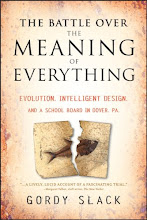 |
| Daniel Williams as Prince John |
The Lost Prince's direct portrayal of seizures is hard to watch... but worth it. Few things are more scary to see for the first time than a child having a seizure. But by the third or fourth time, compassion starts to eclipse horror. Every family living with epilepsy reaches that point, but it would be great if society at large could as well. The horror response, and the fear those with epilepsy have of evoking it, conserves epilepsy's persistent stigma and bolsters its aura of shame. Exposure to realistic portrayals of seizures may help.
The Lost Prince also captures the remarkable resilience of children with epilepsy and the perspective they bring to those around them. As the royal family struts and wrings their hands over picayune protocol and the "horrors" of perceived and real slights, Prince John opts out and instead draws funny and incisive portraits of the family's follies. He is the only one brave enough to speak up when the emperor has no clothes. Having a child with epilepsy--and, in the case of John, learning disabilities as well--can bring a quick and corrective perspective shift in families. But that was a shift the royal family wasn't prepared to make. At least not until the death of the delightful young prince, probably from status epilepticus--a seizure that won't stop--at age 13.
After the funeral, Prince George, still a teenager, tells John's devastated nanny that his brother "was the only one of us who was really allowed to be himself." It is no small consolation. As for Prince George, his stammering is not portrayed in The Lost Prince. One royal disability at a time, I guess. A good excuse to see both films.


3 comments:
Excellent review of the Lost Prince. I first saw this film five years ago and thought little of it. However, after hearing the shout out to Johnny in the King’s Speech, I had to track it down the Lost Prince and rewatch. It was worth the effort; and I highly recommend watching it to anyone historical fiction or drama fan.
There might be some confusion here as the George who appears in this film is the third son, Prince George, of Kent. The second son, Prince Albert, of York would change his name when he became King.
Thanks for this! I finally had a chance to watch The King's Speech and was intrigued by the younger brother's story. I hope I can find the Lost Prince!
Prince GEORGE was the Duke of Kent.
Prince ALBERT was the Duke of York. He was the one with the stammer. He would eventually become George VI.
His older brother would become Edward VIII.
There was also Prince Henry, Duke of Gloucester.
The line of brothers went:
Edward, (Edward VIII)
Albert, (George VI)
Henry, (Duke/Gloucester)
George, (Duke/Kent)
Johnny, (Epilepsy).
The 'George' in the movie is not King George VI (Albert), but George, Duke of Kent.
Post a Comment